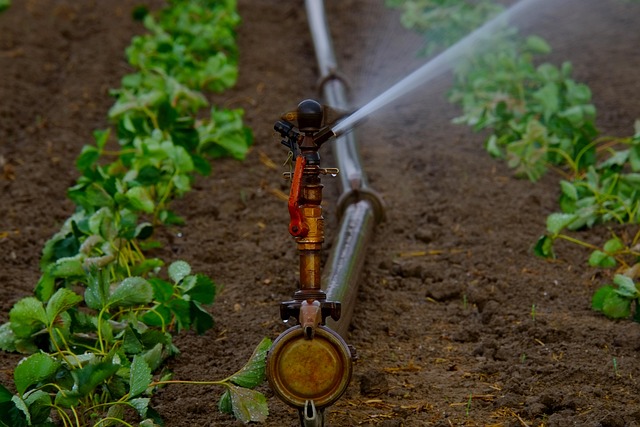Climate-Smart Agriculture Pathway

Climate-Smart Agriculture (CSA) is rapidly emerging as a transformative approach to farming that balances productivity, resilience, and environmental sustainability. As the impacts of climate change become increasingly evident—ranging from unpredictable rainfall and rising temperatures to extreme weather events—traditional farming methods alone are no longer sufficient to meet the world’s growing food demands. Climate-Smart Agriculture provides a solution by integrating innovative practices that not only increase crop yields but also reduce greenhouse gas emissions and enhance the adaptability of farming systems.
At its core, Climate-Smart Agriculture focuses on three interconnected goals: increasing agricultural productivity to ensure food security, adapting and building resilience to climate change, and reducing or removing greenhouse gas emissions wherever possible. This holistic approach encourages the adoption of sustainable techniques such as precision farming, agroforestry, improved soil management, water-efficient irrigation, and the use of climate-resilient crop varieties. By combining traditional knowledge with modern technology, farmers can make informed decisions that safeguard their livelihoods while protecting natural resources.
Implementing Climate-Smart Agriculture also has socio-economic benefits. It empowers farming communities with knowledge and tools to respond effectively to climate challenges, fosters sustainable rural development, and opens opportunities for green investments. Governments, organizations, and farmers working together in CSA initiatives can achieve long-term food security, environmental conservation, and economic growth.
In essence, Climate-Smart Agriculture is not just a farming method—it is a pathway to a sustainable future. By embracing practices that harmonize productivity with climate resilience, the agriculture sector can continue to feed a growing population while safeguarding the planet for generations to come. Adopting CSA today is an investment in both environmental stewardship and sustainable growth.
Key Principles of Climate-Smart Agriculture
Climate-Smart Agriculture (CSA) is guided by three main principles: productivity, adaptation, and mitigation. Productivity ensures that farmers can meet the growing demand for food, fiber, and fuel without depleting natural resources. Adaptation focuses on increasing the resilience of crops, livestock, and farming systems to changing climatic conditions. Mitigation aims to reduce greenhouse gas emissions through sustainable farming practices, promoting a balance between agricultural output and environmental health.
Sustainable Farming Practices
Climate-Smart Agriculture encourages a variety of innovative and sustainable farming methods. Agroforestry, for example, integrates trees into agricultural lands, improving soil fertility and providing shade for crops. Soil health management—including composting, crop rotation, and reduced tillage—helps retain nutrients and moisture while reducing erosion. Water-efficient irrigation systems, such as drip and sprinkler irrigation, ensure crops receive adequate water while minimizing waste. Additionally, climate-resilient crop varieties are developed to withstand droughts, floods, and temperature extremes, safeguarding food production in uncertain weather conditions.
Technological Integration
Modern technology plays a pivotal role in Climate-Smart Agriculture. Precision farming tools, such as satellite mapping, soil sensors, and weather forecasting, allow farmers to make data-driven decisions. These tools optimize the use of inputs like water, fertilizers, and pesticides, reducing environmental impact and increasing efficiency. Digital platforms and mobile applications also provide farmers with real-time guidance on planting schedules, pest management, and market trends, empowering them to make informed choices in a changing climate.
Socio-Economic Benefits
Beyond environmental gains, Climate-Smart Agriculture offers significant socio-economic advantages. By increasing crop yields and reducing losses from climate-related risks, farmers achieve greater financial stability. Communities benefit from enhanced food security and opportunities for sustainable livelihoods. CSA also encourages investment in green technologies and infrastructure, generating employment and fostering rural development.
A Collective Path Forward
Climate-Smart Agriculture is most effective when supported by collaboration among farmers, governments, researchers, and organizations. Policies promoting CSA incentives, access to credit, and capacity-building programs help scale up sustainable practices. Together, these efforts create a resilient agricultural system that can feed a growing population while conserving natural resources.
Take the Next Step Towards Sustainable Farming Today!
Discover how Climate-Smart Agriculture can transform your farm into a model of productivity, resilience, and environmental stewardship. Connect with experts, access the latest solutions, and embrace practices that ensure both higher yields and a greener future.
📞 Call Now: +91 9830 720311 / 83369-77770
💻 Visit Us: Indochem Agrovet
Our Offices:
- Mumbai: Parewala House No.4, Vakola, Santacruz (East), Mumbai 400055
- Kolkata: Block – DD, House no-197, 1st Floor, Street no-295, Action Area-1, New Town, Kolkata, West Bengal 700156
🌾 Don’t wait—embrace Climate-Smart Agriculture and secure a sustainable, profitable future for your farm today!

